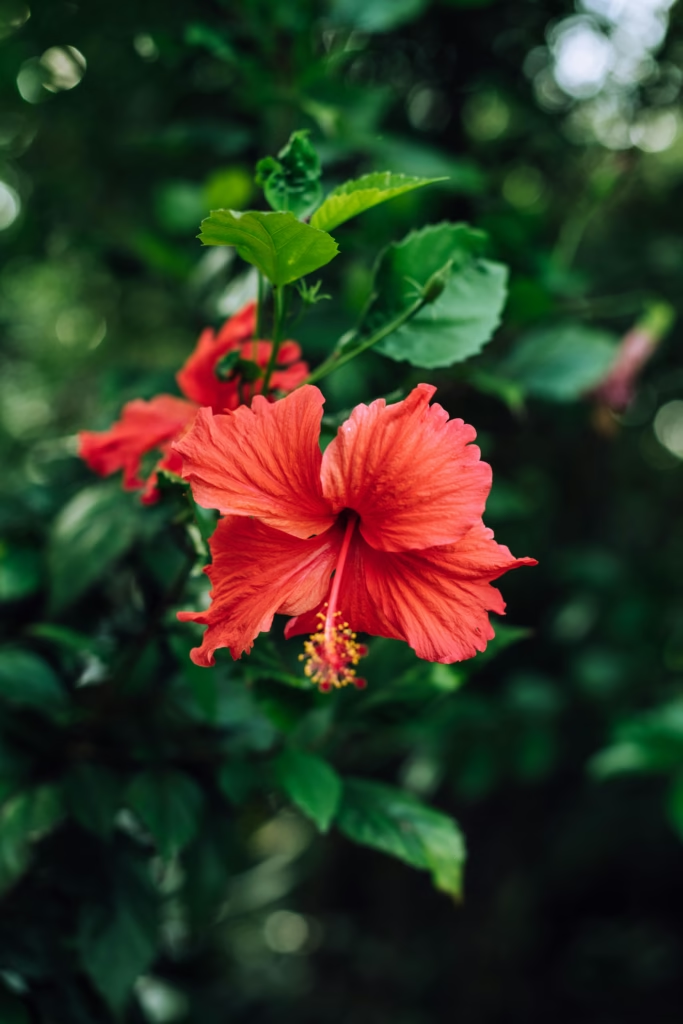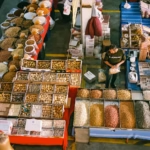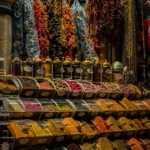
As consumer interest in natural wellness continues to grow, herbal products are gaining widespread popularity in global markets. Among the many botanical ingredients now in demand, hibiscus stands out—not only for its striking red color and tangy flavor but also for its impressive health benefits. And when it comes to sourcing high-quality hibiscus, Africa has become the go-to region for global buyers. The rise of African hibiscus export is no coincidence—it’s the result of ideal growing conditions, traditional cultivation practices, and an increasing focus on quality and sustainability.
This blog explores why African hibiscus has earned a preferred spot in the global herbal industry, and why international buyers are increasingly turning to Africa to meet their growing demand.
Africa: The Ideal Origin for Hibiscus
Hibiscus sabdariffa, also known as Roselle, is a flowering plant grown mainly in tropical and subtropical regions. African countries like Sudan, Nigeria, Egypt, Senegal, and Burkina Faso are some of the leading producers of hibiscus globally. These regions offer the perfect combination of climate, soil, and traditional knowledge needed to cultivate hibiscus at scale and with excellent quality.
What sets African hibiscus apart is its deep red calyces, which are rich in anthocyanins and other antioxidants. These compounds are the main reason hibiscus is used in herbal teas, supplements, cosmetics, and even functional foods. The consistently high quality of hibiscus sourced from Africa has helped position African hibiscus export as a leading force in the global market.
Health Benefits Driving Global Demand
One of the strongest reasons behind the growth in African hibiscus export is the increasing awareness of hibiscus’s health benefits. As consumers worldwide shift towards healthier lifestyles and look for natural alternatives, hibiscus has gained a reputation for being a powerful ingredient. Some well-documented benefits include:
- Heart health: Hibiscus tea may help lower blood pressure and cholesterol levels.
- Antioxidant-rich: It is packed with antioxidants that help combat oxidative stress.
- Digestive aid: Known to support digestion and reduce bloating.
- Weight management: Hibiscus extracts are often included in weight-loss supplements due to their metabolism-boosting properties.
Global health brands are now capitalizing on these benefits by incorporating hibiscus into teas, capsules, gummies, and skincare lines. The result is a surge in demand for raw hibiscus, particularly that grown in Africa.
Quality and Processing Standards
One of the reasons global buyers prefer African hibiscus is the quality consistency ensured by local producers. Many African suppliers now follow strict harvesting and drying methods to preserve the potency and color of the hibiscus petals. For instance, hand-harvesting and sun-drying processes are used to maintain the plant’s natural properties without chemical interference.
Exporters involved in African hibiscus export are increasingly aligning with international food safety and organic certification standards. These include HACCP (Hazard Analysis Critical Control Point), ISO, and USDA Organic, which offer reassurance to buyers in North America, Europe, and Asia.
Moreover, exporters like Ahar Group are known for ensuring clean, contaminant-free, and well-packaged hibiscus shipments, which helps reduce losses and build long-term buyer trust.
Economic and Social Impact
The growing global demand for hibiscus is not only benefiting international buyers and consumers—it’s also transforming rural African economies. Hibiscus farming is labor-intensive and relies heavily on smallholder farmers, many of whom are women. Through the export trade, these farmers gain access to international markets and better income opportunities.
Organizations and exporters involved in African hibiscus export often work closely with local communities to train farmers on sustainable practices, improve post-harvest processing, and provide fair compensation. This has a direct impact on improving livelihoods, increasing financial independence, and supporting rural development.
Sustainability and Ethical Sourcing
Today’s global buyers are not just concerned about price—they want ethically sourced, environmentally sustainable products. African hibiscus export increasingly meets these criteria, as exporters invest in traceability systems and eco-friendly practices.
From avoiding chemical pesticides to using biodegradable packaging, exporters are aligning with the values of modern consumers. Fair trade certifications and sustainable farming initiatives are also becoming more common, further boosting the appeal of African hibiscus on the international stage.
Buyers appreciate knowing that their purchases support community development and environmental preservation, making African hibiscus an even more attractive option.
Challenges and Innovations
While the outlook is promising, African hibiscus export still faces challenges such as inconsistent weather patterns, lack of processing infrastructure, and limited access to global logistics networks in some regions. However, innovation is on the rise.
Many exporters are investing in solar-powered drying facilities, advanced sorting machinery, and digital supply chain tools to improve efficiency and reliability. Governments and NGOs are also offering grants and training programs to help smallholder farmers scale up operations and access new markets.
Ahar Group: A Trusted Name in African Hibiscus Export
One example of a reliable exporter making a mark in the hibiscus space is Ahar Group. Known for its commitment to transparency, quality, and ethical sourcing, Ahar Group has built strong relationships with farmers and buyers alike.
By working closely with producers on the ground and following stringent quality protocols, Ahar Group ensures that each shipment of hibiscus meets international standards. Their contribution to African hibiscus export has not only brought African products to global markets but also created value across the supply chain—from farm to shelf.
Conclusion
The global herbal products market continues to grow, with hibiscus taking center stage thanks to its health benefits, vibrant appeal, and versatility. As demand increases, African hibiscus export is proving to be a reliable and sustainable solution for global buyers seeking high-quality, ethically sourced ingredients.
With ideal growing conditions, strong community involvement, and exporters like Ahar Group championing quality and sustainability, African hibiscus has become more than just a commodity—it’s a symbol of Africa’s agricultural potential and its vital role in the wellness economy. For global buyers looking to make a lasting impact with their sourcing decisions, African hibiscus remains a clear choice.











Add comment